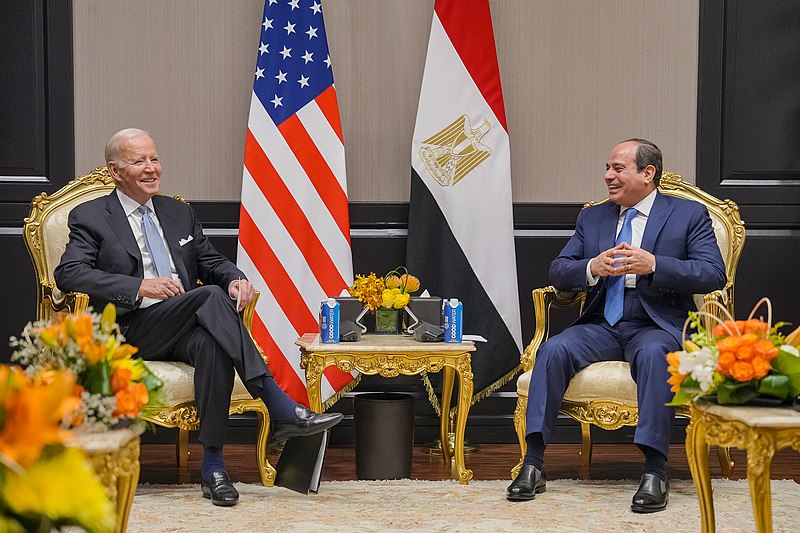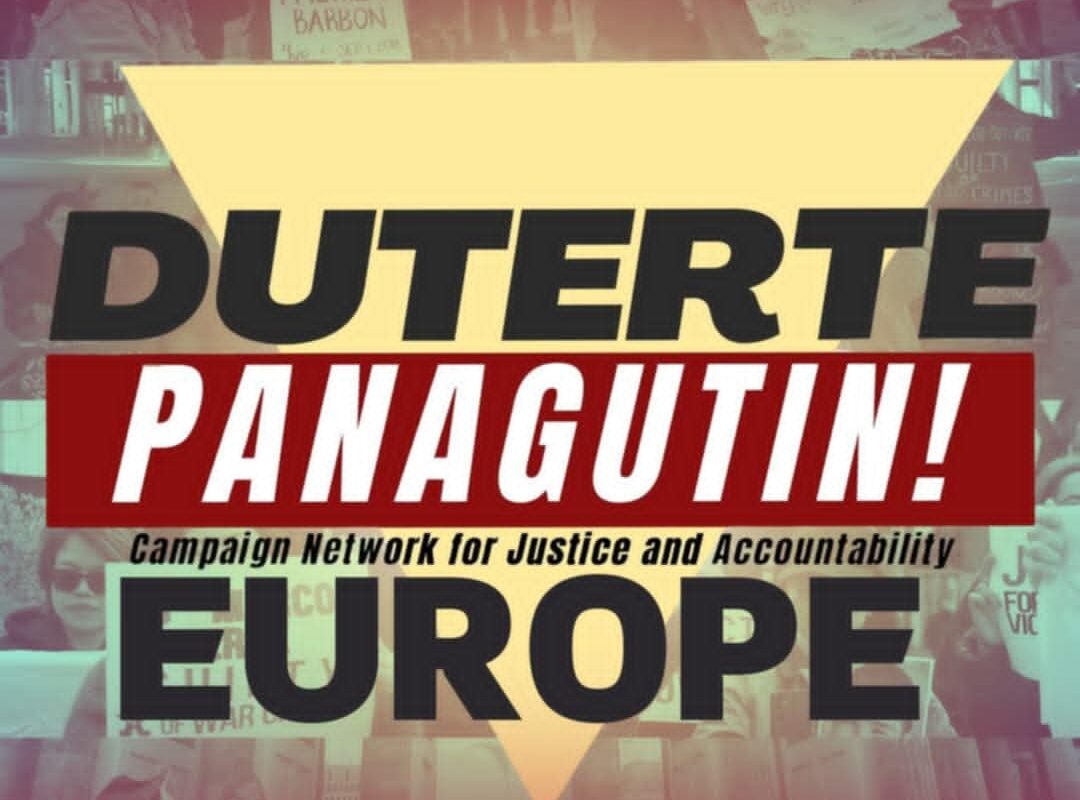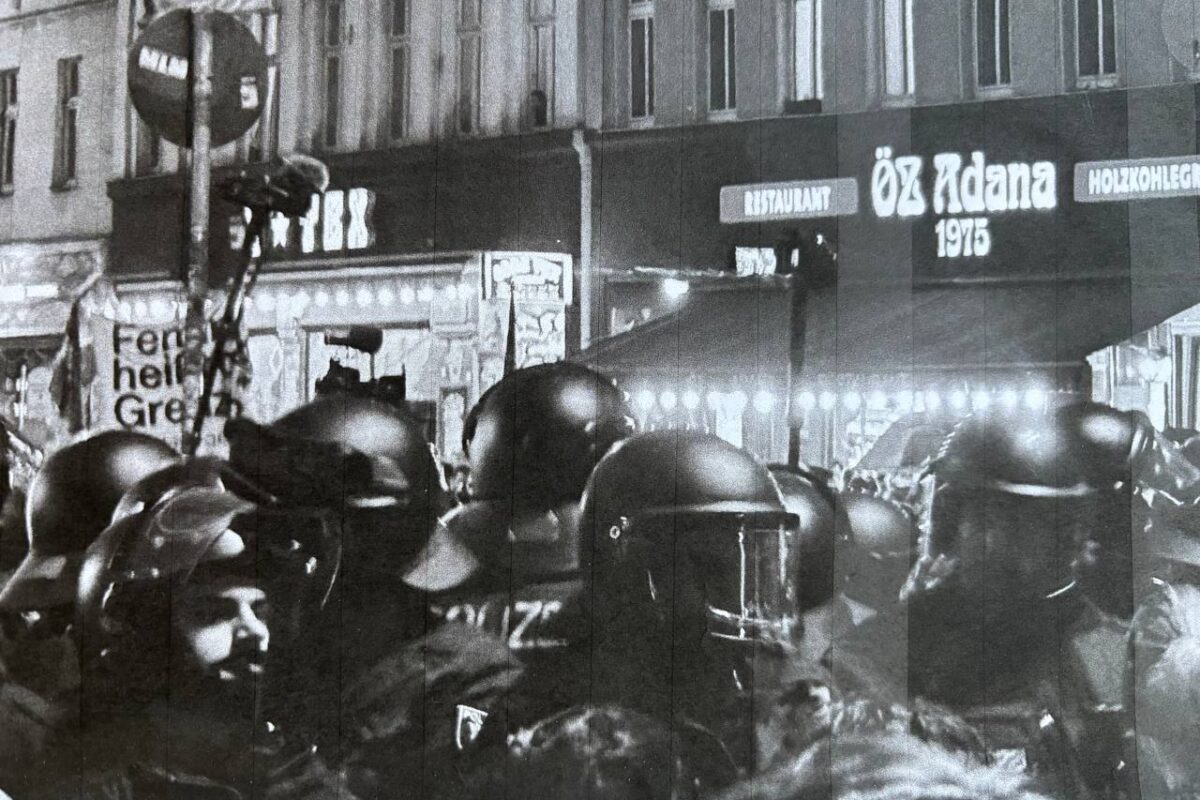COP27 is over. For over two weeks, delegates from around the world gathered in the gated community of Sharm El-Sheikh, Egypt. Under the slogan, “Together for implementation”, the parties aimed to agree on concrete measures that would keep the goal of limiting global warming to 1.5 degrees, while simultaneously addressing the increasingly pressing issue of loss and damage, exemplified by floods that left one-third of Pakistan under water this summer. This article breaks down what did and did not come out of COP27, while addressing the dystopic political circumstances under which the summit took place. Finally, I reflect on the way forward for the climate justice movement in light of next years‘ COP being hosted by an authoritarian petrostate – the United Arab Emirates.
The results of COP27 in Egypt were mixed, to put it mildly. On the one hand, the parties agreed to set up a fund for loss and damage within the UN system. This is no small feat and can be seen as the culmination of campaigning by activists and vulnerable countries for over thirty years. It was the achievement of a united G77 that brought western countries – albeit kicking and screaming – to an agreement on setting up the fund. However, how and whether the fund will be filled remains to be seen. Countries of the Global South know all too well the script of rich countries pledging to deliver large sums of climate finance that fail to materialise, as was the case with COP15’s $100 billion yearly target in Copenhagen in 2009.
Even if expectations might have been low in advance of this year’s COP, the overall response to the crisis was dismally inadequate. As an example, oil and gas was not even mentioned in the final declaration. Thus, the well over 600 fossil fuel lobbyists that had been frequenting the conference venue at Sharm El-Sheikh – a record number – could go home with a substantial feather in their cap.
The fossil fuel lobby was not the most sinister component of this COP, however. Behind the scenes, an army of security personnel closely watched even the very restricted protests occurring within the “blue zone”, the area that hosted the negotiations. Delegates got a small taste of the Sisi regime’s obsession with surveillance through wire-tapped taxis as well as an official COP27 app from the Egyptian presidency with the capacity to severely infringe upon the privacy of any of its users. As if that was not enough, the COP venue itself was run by a company with direct ties to Egypt’s foreign intelligence service.
Sharm El-Sheikh is a dystopian city, where the urban sprawl of luxury resorts, casinos and private beaches have led to serious environmental degradation of the unique marine environment surrounding the city. Far removed from the rest of Egyptian society, both in terms of geography and prices, it provided a remote outpost that could be fully isolated from disgruntled citizens who might consider protesting during the megaevent.
The regime of General Abdel Fattah el-Sisi is obsessed with making sure that upheavals like the 2011 Tahrir uprising will not happen again, and has doubled down on surveillance and arbitrary detentions, filling newly built prisons with ever more political prisoners. His authoritarian counter-revolution is even leaving its mark in the country’s urban fabric. Parks and green areas in Cairo are being razed to make way for highways while a completely new administrative capital is being constructed in the outskirts of Cairo. The megaproject is being overseen by the military, and will place the state machinery in a comfortable distance away from any disgruntled masses in Cairo – the same collective agent that led to the downfall of the Mubarak regime in the 2011 revolution. With public space disappearing, the very material foundations for a new uprising are to be quenched.
The spectacular combination of securitization and a complete lack of environmental planning is also clearly present in Sharm El-Sheikh, where a wall was built around the city. The wall, yet another aerial encroachment into the lands of the indigenous Sinai Bedouins, was built without drainage, causing a sweeping flood when it gave in to heavy rain.
These accounts are not given to raise an “orientalist” critique of Egyptian society that casts its rulers and administration as inherently despotic and incompetent. Rather, the current Egyptian reality cannot be abstracted from long lines of imperialism, economic dependency and contemporary military aid from western powers.
In a brilliant essay, Egyptian writer Omar Robert Hamilton (2022) describes how the Sisi regime survives: “The state seems like a body on life support, a series of tubes running in and out of it, foreign doctors occasionally administering steroidal loans or applying structural adjustment chemotherapies. We study the tubes, the infrastructure, the industrial and commercial networks running in and out of it to understand how it is being kept alive.”
The COP27 presidency was seized by the regime as an opportunity to get more “support tubes” in the form of foreign currency, industry deals with foreign countries while greenwashing its image.
Taking stock of COP27, we can conclude that while certain battles were won, we are still losing the war against climate change. Even though there were campaigns in solidarity with Egyptian activists and political prisoners, no significant concessions were given from the authorities. The high-profile author and Egyptian revolutionary Alaa Abd el-Fattah remains imprisoned, despite calls from a wide international community for his release. As the world turns its eyes away from Egypt after the COP, it is important that the left in other countries sustains pressures on the Sisi regime by challenging military aid and corporate relations with the country. Unlike Alaa, we have not yet been defeated, and still have the agency to challenge the neoliberal military dictatorship from abroad, an action that comes only at tremendous personal costs inside the country.
Socialists of earlier times recognised that the struggles for “bourgeoisie” freedoms, such as freedom of expression and assembly, were not in themselves sufficient. However, without political freedom – the light and air of the working class – the wider struggle for a truly free society cannot be won. This also holds for the climate struggle, and therefore solidarity with Egyptian activists is part of how we can avert climate catastrophe: by building people’s power and strong links of solidarity.
The next COP will take place in Dubai, a city built on the foundations of modern slavery and fossil capital. Whatever levels of surveillance experienced by the delegates to the COP in Egypt will be outdone in terms of sophistication from the UAE, a state with a dismal record of human rights violations.
In response to the climate summits’ dwindling civic space, and to the COP turning increasingly into a spectacle of greenwashing, prominent author and climate activist Naomi Klein has advocated boycotting COP28. This call presents difficult considerations for social movements and activists who have fought tirelessly to put a just transition on the COP agenda for decades. They would certainly not want to see the proverbial baby thrown out with the bathwater. Whatever stance is taken in this debate, it will be important to listen well to the voices coming from our comrades in the Global South, whose livelihoods are disproportionately affected by the failure to act.
No matter what path that is chosen with regard to the left’s position on next climate summit, some things are clear: the climate crisis is upon us, but forms of resistance are multiplying and diversifying on a global scale. No single climate summit will ever be enough. Rather, a pathway that averts the grimmest future scenarios will have to include a multitude of strategies and agents, as described in Kim Stanley Robinson’s brilliant novel The Ministry for the Future (2020).
Whether or not civil society and social movements will amass in Dubai or in decentralised counter-summits next fall, the climate justice movement must increasingly lift up the banner of political freedom and forge bonds of solidarity with migrant workers and political prisoners in the UAE. A thorough assessment of the degree to which this will be possible in Dubai should guide the decision on whether to attend or boycott COP28.
Bibliography
- Abd el-Fattah, Alaa. 2022. You Have Not Yet Been Defeated : Selected Works 2011-2021. New York: Seven Stories Press.
- Hamilton, Omar Robert. 2022. Before the COP: Sustainable power. Mada Masr June 16, 2022.
- Hossam el-Hamalawy. 2022. Putting Slogans to the Test.
- Lih, Lars T. 2008. Lenin Rediscovered : “What Is to Be Done?” in Context. Chicago (Ill.): Haymarket Books.
- Malm, Andreas. 2016. Fossil Capital the Rise of Steam Power and the Roots of Global Warming. London: Verso.
- Naceur, Sofian Philip. 2022. Al-Sisi’s “New Republic”. How the Real Estate Frenyz in Egypt Sustains the Regime’s Grip on Power. RLS North Africa Research Paper Series #4.
- Naceur, Sofian Philip. 2022. COP27: A Political Gift for El-Sisi’s Torture Regime.
- Robinson, Kim Stanley. 2020. The Ministry for the Future First ed. New York NY: Orbit.




